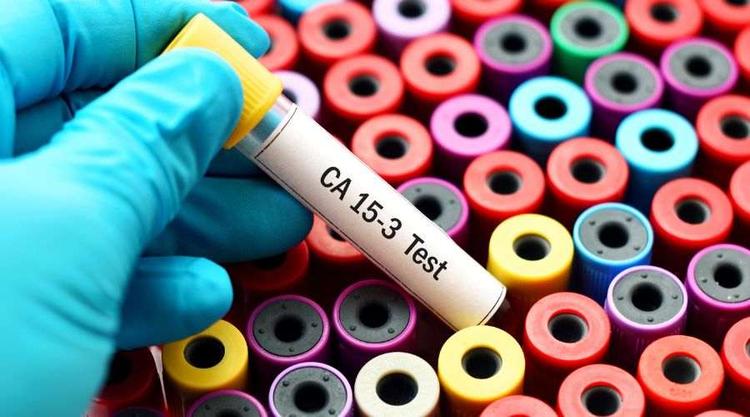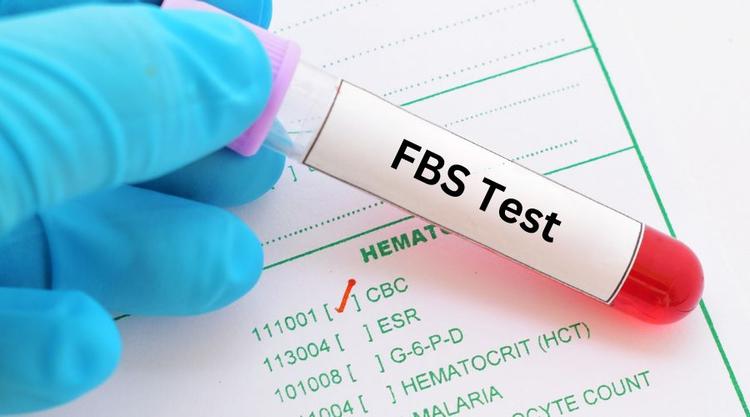Essential Blood Tests to Diagnose High Blood Pressure

Medically Reviewed By
Dr Divya Rohra
Written By Kirti Saxena
on Feb 3, 2024
Last Edit Made By Kirti Saxena
on Mar 18, 2024

As per statistics, 33% of urban and 25% of rural India suffers from hypertension or high blood pressure issues, out of which only 25% of rural and 42% of urban are aware of high blood pressure status. Only 25% of rural and 38% of urban Indians get treatment for hypertension. Only 1/10th of rural and 1/5th of urban people have their Blood pressure under control.
Hypertension is one of the major causes of premature death in the world. Nearly 63% of total deaths in India are due to non-communicable diseases, of which 27% are due to cardiovascular disease, which affects 45% of people in the 40-69 age group. Uncontrolled blood pressure is one of the significant risk factors for cardiovascular diseases (CVDs) such as heart attacks and stroke. It is responsible for one-third of total deaths in India. Hypertension or high blood pressure is when the pressure is too high (140/90 mmHg or higher). The cause of high blood pressure is a sedentary lifestyle, not being physically active, a high-salt diet, and drinking too much alcohol. The blood pressure may not feel any symptoms. With regular blood tests for high blood pressure and routine consultation with a doctor, you can identify if you have hypertension issues. Here in this blog, we will discuss some essential blood tests to diagnose high blood pressure.
Symptoms of High blood pressure
Most of the people suffering from high blood pressure do not experience any symptoms; this is the reason why it is also known as a silent killer. Once the blood pressure reaches 180/120 mm Hg, the condition becomes critical and calls for a medical emergency. At this stage, a person with high blood pressure may feel;
- Nausea
- Vomiting
- Headaches
- blurred or double vision
- chest pain or tightness
- Shortness of Breath
- dizziness
- nosebleeds
- heart palpitations
- breathlessness
Blood Pressure Measurement
To measure the blood pressure, your doctor will measure the systolic and diastolic pressure. The normal blood pressure lies between 120/80 mmHg or lower. High blood pressure ranges from 140/90 mmHg or higher. Severe hypertension is 160/100 mmHg and higher, which requires immediate attention and medical treatment. The blood pressure changes day and night, depending on the activity levels and health conditions.
Important blood Test for High Blood Pressure
Here is the list of some essential blood tests for high blood pressure.
Complete Blood Count
The CBC test measures the different components of blood, including RBC, WBC, and platelets. While the CBC is not directly linked to high blood pressure, it can help doctors to check the potential risk related to your health. Abnormal Hemoglobin and Hemoglobin may cause fatigue and increase heart rate, contributing to high blood pressure. Consult your doctor and take a CBC test to confirm the underlying conditions or complications of high blood pressure.
Electrolytes Test
An electrolyte test is not specific to high blood pressure. The electrolyte test measures the essential minerals or electrolytes in the blood, including sodium, potassium, and chloride. Moreover, electrolytes are helpful to balance the fluids in and out of cells, nerve function, and muscle contraction, including heart and muscle. However, the fluctuation in electrolyte levels may indicate cardiovascular health issues like high blood pressure.
C-reactive Protein (CRP)
The C-reactive protein or CRP test is an inflammation marker linked to assessing the risk of hypertension. Chronic inflammation is associated with the development and progression of cardiovascular diseases, including hypertension. Monitoring CRP levels alongside blood pressure provides a more comprehensive view of cardiovascular risk.
Creatinine Test
The creatinine test measures the creatinine level in blood. Creatinine is filtered out of blood by the kidneys and excreted in urine. The creatinine test is used to assess kidney function. High levels of creatinine in the blood indicate impaired kidney function. High blood pressure can damage the blood vessels in the kidneys, reducing their ability to filter blood effectively. If you have hypertension, consult with your healthcare provider. Your doctor may recommend a creatinine test to assess your kidney functioning. High creatinine levels indicate kidneys are not effectively filtering waste products from your blood, which could be due to hypertension-related damage.
Lipid profile for cholesterol
The lipid profile test measures the cholesterol level and fats in the blood. Monitoring lipid levels helps assess heart conditions like high blood pressure. The test measures total cholesterol, LDL, HDL, and triglyceride levels. The imbalance of cholesterol levels increases the risk of heart diseases like high blood pressure. High cholesterol can damage blood vessels, leading to conditions such as atherosclerosis and increasing the risk of heart attacks and strokes.
Blood sugar (Glucose) test
Monitoring blood sugar levels is essential to managing blood sugar and high blood pressure. High blood pressure and high blood sugar levels differ, but these two may increase cardiovascular risk. The Hba1c test measures the glucose level in the blood, and high sugar levels indicate the risk of hypertension and cardiovascular diseases like stroke and heart disease. Consult your test reports with your doctor; your healthcare provider may recommend lifestyle modifications and treatment options based on your condition.
Kidney function tests
Kidney function test is crucial for people with high blood pressure as hypertension causes kidney damage. The test includes various parameters: Blood Urea, BUN/Creatinine Ratio, Calcium, Chloride, Creatinine, Phosphorus, Potassium, Sodium, Urea/Creatinine Ratio, and Uric Acid. The abnormal parameter level causes damage to the blood vessels in the kidneys, leading to chronic kidney disease (CKD). If you have hypertension, your healthcare provider may recommend a regular KFT test.
Thyroid function tests
The thyroid function tests assess the thyroid functioning. However, thyroid functioning and blood pressure are linked. Abnormal thyroid function can contribute to changes in blood pressure. High TSH levels may indicate hypothyroidism, which may increase the risk of hypertension. Thyroid disorders can influence heart rate and vascular resistance, impacting blood pressure regulation. Always consult your healthcare professional to know your health conditions and risk factors.
Why are regular health checkups essential to manage high blood pressure?
If you have recently been diagnosed with hypertension, then routine health checkups are only an effective way to control high blood pressure. Here are some reasons why you should take regular health checkups for high blood pressure:
- Regular checkups help monitor your blood pressure and risk of heart disease.
- Routine health checkups for high blood pressure help take preventative precautions before the condition worsens.
- Your doctor is the right person to guide you on managing hypertension issues. Your doctor may recommend lifestyle changes, dietary changes, exercise, and stress management tips to control hypertension.



